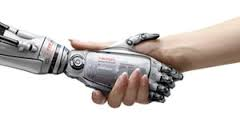
Breaking News
 $26M Frozen on Blockchain - With One Click
$26M Frozen on Blockchain - With One Click
 Italy are on national strike shutdown rejecting digital enslavement...
Italy are on national strike shutdown rejecting digital enslavement...
 The following U.S. states are currently using the rebranded "Reporty Homeland Security" so
The following U.S. states are currently using the rebranded "Reporty Homeland Security" so
 NATO Chief Urges Europe To Prepare For Long-Term World War With Russia, China, Iran & North Korea
NATO Chief Urges Europe To Prepare For Long-Term World War With Russia, China, Iran & North Korea
Top Tech News
 HUGE 32kWh LiFePO4 DIY Battery w/ 628Ah Cells! 90 Minute Build
HUGE 32kWh LiFePO4 DIY Battery w/ 628Ah Cells! 90 Minute Build
 What Has Bitcoin Become 17 Years After Satoshi Nakamoto Published The Whitepaper?
What Has Bitcoin Become 17 Years After Satoshi Nakamoto Published The Whitepaper?
 Japan just injected artificial blood into a human. No blood type needed. No refrigeration.
Japan just injected artificial blood into a human. No blood type needed. No refrigeration.
 The 6 Best LLM Tools To Run Models Locally
The 6 Best LLM Tools To Run Models Locally
 Testing My First Sodium-Ion Solar Battery
Testing My First Sodium-Ion Solar Battery
 A man once paralyzed from the waist down now stands on his own, not with machines or wires,...
A man once paralyzed from the waist down now stands on his own, not with machines or wires,...
 Review: Thumb-sized thermal camera turns your phone into a smart tool
Review: Thumb-sized thermal camera turns your phone into a smart tool
 Army To Bring Nuclear Microreactors To Its Bases By 2028
Army To Bring Nuclear Microreactors To Its Bases By 2028
 Nissan Says It's On Track For Solid-State Batteries That Double EV Range By 2028
Nissan Says It's On Track For Solid-State Batteries That Double EV Range By 2028
Move over Asimov: 23 principles to make AI safe and ethical

The question sounds like the basis of a sci-fi flick, but with the speed that AI is advancing, hundreds of AI and robotics researchers have converged to compile the Asilomar AI Principles, a list of 23 principles, priorities and precautions that should guide the development of artificial intelligence to ensure it's safe, ethical and beneficial.
The list is the brainchild of the Future of Life Institute, an organization that aims to help humanity steer a safe course through the risks that might arise from new technology. Prominent members include the likes of Stephen Hawking and Elon Musk, and the group focuses on the potential threats to our species posed by technologies and issues like artificial intelligence, biotechnology, nuclear weapons and climate change.

 Carbon based computers that run on iron
Carbon based computers that run on iron

